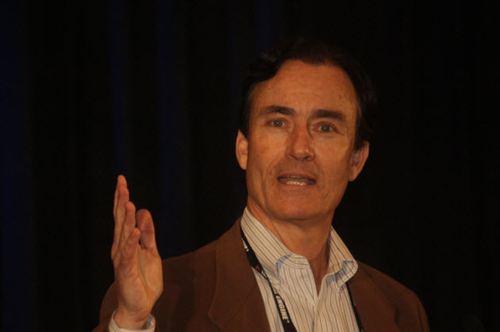离岸避税手段失效,Trip Hawkins深陷债务麻烦
据《福布斯》报道,美国法官最近责令Digital Chocolate公司首席执行官、EA创始人Trip Hawkins补缴2000万美元税款,Trip Hawkins申请以个人破产途径取消这笔债务的请求已被法官驳回。
这个消息对那些致富后就与美国国税局(IRS)缠上关系的企业家来说,不可谓不是一个发人深省的教训。游戏邦获悉,Trip Hawkins在大约30年前创立EA公司时曾隐瞒了大量的个人财产,美国地方法院法官Feffrey S.White之前已开庭审理他的这桩避税案件。
法官表示在美国国税局追究他的避税行为后,Hawkins明知自己已陷入破产的境地,但“仍在身负税债的情况下奢侈挥霍……他打算通过破产来逃避纳税义务,继续过着原来养尊处优的生活。”
有证据显示Hawkins在此期间还购买了价值7万美元的第四辆汽车,不过Hawkins本人及其公司并未对此事做出回应。
游戏邦获悉,Hawkins现年57岁,其公司最近刚融资1200万美元,主要投资者包括英特尔投资、Sutter Hilk Ventures和Bridgescale Partners。他本人及其妻在2006年递交了破产申请。法院文件显示,他的资产为500万美元,另外还欠加州地方税务局、美国国税局共2800万美元税款。根据美国法律严禁债务人“故意避税”的相关规定,两家税务局驳回了他们要求清空债务的要求。
在2006年,美国国税局拒绝了Hawkins以补缴800万美元结案的请求。这桩案件对当时的Hawkins影响不小,要知道他可是现代视频游戏的创始人之一,在1982年成立了EA公司,成功带领该公司推出了EA Sports等一系列热门游戏,将EA推向了视频游戏的神坛。他在1991年离开EA,创立了3DO,希望通过开发3DO的视频游戏掌机设备与任天堂相抗衡。
在1990年中期,由于在EA持有大量股票,Hawkins的资本净值超过了1亿美元。后来他在1994年出售了EA,这笔交易产生了巨大的资本收益税。KPMG(毕马威会计事务所)的会计师告诉他,可以通过制造大量资本亏损的假象,巧妙避开这笔税款。于是他们就通过向UBS AG(瑞士联合银行股份有限公司)等离岸公司投资等途径有意避税。从1996年至2000年,Hawkins宣布资本亏损达到5600万美元,但在2001年,美国国税局认为这是一种违法的避税行为,据称当时也有成百上千的企业家同时受到牵连。
Hawkins在2001年算得上是“祸不单行”,当时美国国税局开始对Hawkins进行审查,而索尼、任天堂也正对3DO展开猛烈攻势,3DO只好在2003年宣告破产。Hawkins不得不在与前妻的离婚中净户出身,意图通过减少孩子的抚养费,补上所欠税款。但法官的裁决指出,Hawkins仍在大笔挥霍,他在2005年的每月开销是9.49万美元。而Hawkins却辩称如果美国国税局不能证明他犯了欺诈罪,那就应该同意清空他的税债,不过法官拒绝了这种要求。据称美国其他法官对另外一些避税的企业家也进行了严厉的制裁。(本文为游戏邦/gamerboom.com编译,转载请注明来源:游戏邦)
The IRS isn’t playing games with Trip Hawkins
Trip Hawkins, the chief executive of mobile gaming firm Digital Chocolate and founder of Electronic Arts, may be on the hook for $20 million in back taxes after a judge rejected his attempt to use personal bankruptcy to cancel the debt, according to Forbes.
The story is a cautionary for any entrepreneurs who strike it rich and then tangle with the Internal Revenue Service. U.S. District Court judge Jeffrey S. White upheld an earlier bankruptcy court ruling related to tax shelters he used to shield the vast personal wealth he gained from founding Electronic Arts nearly three decades ago.
The judge said Hawkins knew he was insolvent after the IRS disallowed his tax shelters but “continued to spend money extravagantly with knowledge of his (federal and state) tax liabilities.” The judge said that “Hawkins planned to defeat his taxes via bankruptcy and continue living the lifestyle to which he had grown accustomed.”
Evidence cited in the case included the $70,000 purchase of a fourth car in a two-driver household. Forbes could not reach Hawkins or his company for comment. VentureBeat also hasn’t heard back from Hawkins, who recently appeared at the Game Developers Conference in San Francisco, offering a rant on how there are too many developers making games for Apple’s iOS mobile devices such as the iPhone and iPad 2.
Hawkins, 57, recently raised $12 million in venture financing for Digital Chocolate. Investors included Intel Capital, Sutter Hill Ventures and Bridgescale Partners. He and his wife filed for Chapter 11 bankruptcy in 2006. In court filings, he listed assets of $5 million and liabilities of $28 million owned to the state of California’s tax agency and the IRS. They received a general discharge of their debts but the two agencies fought back under a provision of the law that prohibits a discharge of debts if the debtor “willfully attempted in any manner to evade or defeat such tax.”
In 2006, the IRS rejected a proposal to settle the case for $8 million. The case is a sad one since Hawkins is one of the founding fathers of modern video games. He founded EA in 1982, scoring big hits with EA Sports and other franchises that rocketed EA to the top spot in video games. He stepped away in 1991 to create 3DO, which attempted to wrest power from Nintendo by creating 3DO’s own video game console.
By the mid-1990s, his net worth was more than $100 million, thanks to the value of his EA stock holdings. He began selling that in 1994 to fund 3DO. The sales generated large capital gains taxes. His accountants at KPMG convinced him that he could avoid taxes by creating the appearance of large capital losses without the real risk of loss, Forbes said. These ploys were known as FLIP and OPIS tax shelters and they involved the use of offshore corporations, options and investments in offshore companies like UBS AG. From 1996 to 2000, Hawkins claimed $56 million in capital losses, but in 2001, the IRS challenged the legitimacy of these “basis-shifting tax shelters,” affecting hundreds of other entrepreneurs.
In 2001, the IRS started an audit of Hawkins. Meanwhile, Sony and Nintendo trounced 3DO, which filed for bankruptcy in 2003. Hawkins sold off a home in Atherton, Calif., sought to reduce child support payments to his first wife, and made some tax payments. But the judge ruled that Hawkins continued to make unreasonable expenditures, noting that Hawkins’ monthly expenses in 2005 were $94,900. Hawkins argued in court that the tax debts could be denied discharge only if the IRS proved fraud, but the judge rejected that argument. Other judges have also come down hard on others with similar tax bills.(source:venturebeat)









































